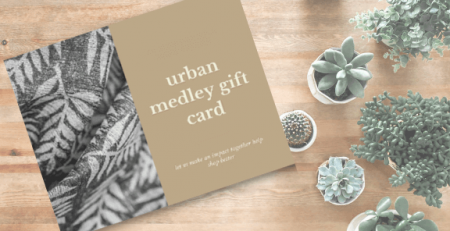Spinning Eri silk- From cocoon to cloth
Eri silk stands out amongst the different varieties of silk with its exquisite rich texture especially when hand spun. The cloth matures with time and softens with use. Eri silk can be used all year round, as it combines the comfort and coolness of cotton and warmth of wool. The exact origins of Eri are somewhat undocumented but it is a tradition intricately entwined in the lives of rural women of Assam and other North-eastern states of India. The word Eri is derived from Era, Assamese for castor, which is a staple of Samia Cynthia ricini silkworm that produces the Eri silk. Eri produced in India, does not involve any killing of the silkworm and hence it is also called ‘Ahimsa’ or peace silk.
The silkworm grows and munches on castor leaves for 30 days until it reaches its final size. It then starts to spin its cocoon, which takes another 15 days. The silkworm slowly transforms into a moth and once the moth flies out and discards the cocoon, the making of the silk begins. Sorting, spinning, and weaving the Eri cloth is an integral part in the daily life of rural women in Assam.
Eri more than just a cloth
Our Eri silk cloth is completely handmade, overseen by Kaushik, a third-generation silk rearer. He belongs to the Borah community and comes from a remote village, Phalpur in Assam. In the village the entire community, men and women have their job cut out.
Shabnam, Janaki and Mehrum along with the rest of the women gather post noon, after the household chores are over to sort the empty cocoons discarded by the moths. This is usually the first step to weaving the magical cloth. It is called ‘Chunai’ or sorting. The cocoons usually come in two colours – a beautiful off white and a reddish brown. They are sorted in three piles two based on colours and the third are the damaged cocoons.
Once the sorting is done- Kundev takes over. He boils these empty cocoons diluted with soap for about 3 hrs. This is called degumming, after which the natural fibres start to loosen up. He repeats the process in small batches over a few weeks an extremely time consuming and laborious task. Once degummed, he gently opens the cocoons by hand, flattens it like cotton pads and throws them against a muddy wall- The flattened cocoons stick to the mud wall and slowly dry out in the natural heat in about a day or two, they are then packed and stored until it is time for spinning.
When we asked Reshma about why Eri continues to be part of her life, she described how fondly her mother had taught her to spin the yarn. It has been the only source of livelihood for her entire family. So Eri is not just a piece of cloth it is a piece of their rich tradition., of a scared relationship between mother and daughter of learning and sharing that must be passed on.
There are many spinning techniques but in Assam the spindle remains the one indispensable tool. The traditional technique is to use the Takuri or the drop spindle with a weight. This is extremely fascinating as it is a mobile tool where the spinner can easily walk around and spin the yarn. Artisans also use the time-honoured Charkha or spinning wheel. ‘The state of mind can easily affect the quality of the yarn. Spinning is like saying a prayer and it has always been the perfect way of life for me’’! says Janaki devi. Janaki, passes the baton to Shahnaz, Jayamal and the rest of the tribe who weaves the soulful cloth using the traditional looms. The threads in the weft and warp must be set by using spools which is quite cumbersome and can easily take 18-20 manhours per loom.
‘Weaving this cloth is profound and holistic, it has removed the emptiness from my life’. Says Mehrum. It is almost ironical how these empty cocoons have filled our lives with meaning, vision and a sense of purpose.
The knowledge the indigenous people have about weaving, and spinning is a precious treasure that can be a cause of exploitation. The methods used by the locals are environmentally friendly and sustainable. Despite the faster production of mill spun yarns and machine woven fabrics many Assamese women are willing to invest their time in handmaking the silk as it is a way to embrace their culture, to follow their pace of life and pass on the craft to the younger generation.
The status of Eri clothes in the folklife of Assam is reflected in an old Assamese proverb ‘Dair pani, erir kani’, which implies that while curd (yoghurt) cools, Eri cloth warms up a person (Chakravorty et al, 2010).
So the next time you buy an Eri scarf spare a moment to reflect on all the hard work and love that’s invested in a simple scarf and the values it reflects of an indigenous community.
Author Shayonti Chatterji










